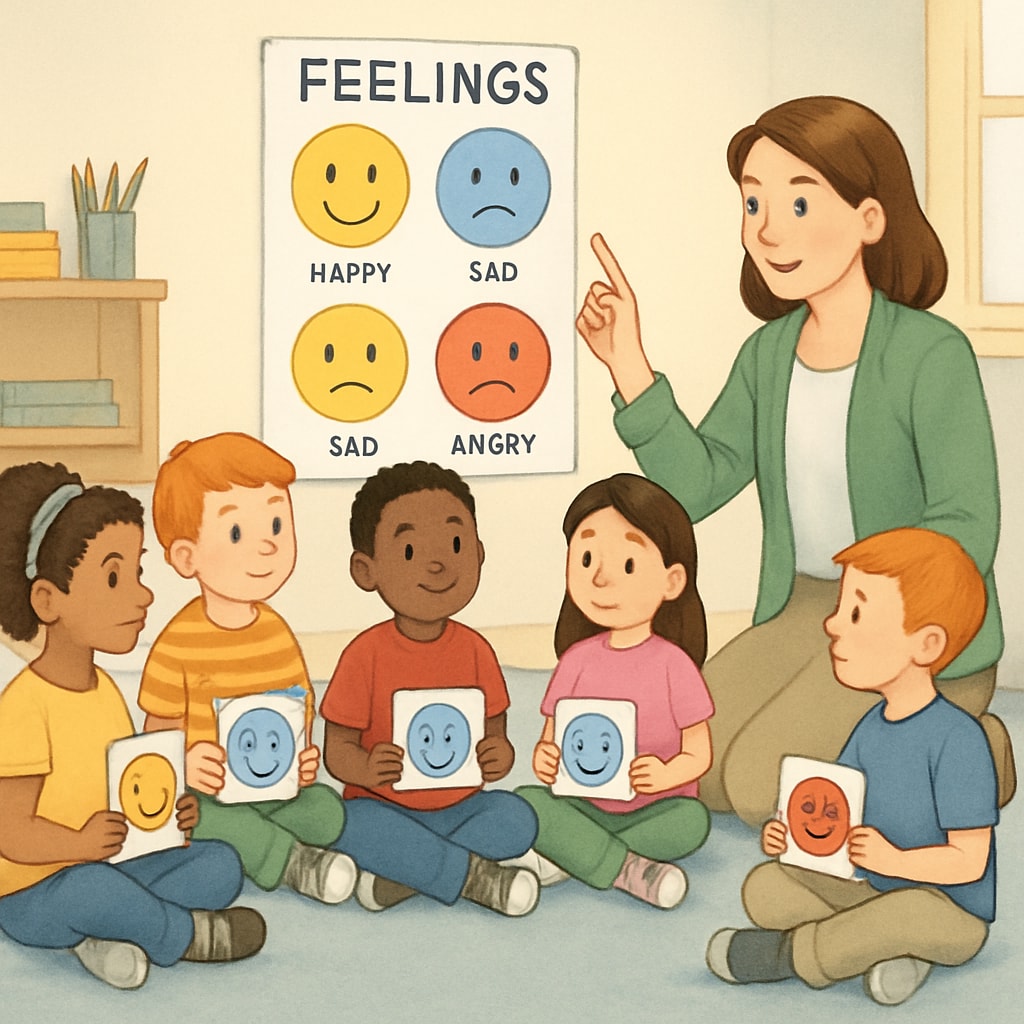Emotional education, child development, and emotional management form the foundation for raising resilient and socially competent individuals. Research shows that children who receive early training in identifying and expressing emotions develop stronger relationships, better academic performance, and improved mental health outcomes. According to the American Psychological Association, emotional intelligence predicts success more accurately than IQ in many life domains.
The Science Behind Emotional Learning
Neuroscience reveals that the brain’s emotional centers develop rapidly during childhood. The prefrontal cortex, responsible for self-regulation, isn’t fully mature until the mid-20s. This makes early intervention crucial:
- Children who understand emotions show 40% fewer behavioral issues (Yale Child Study Center)
- Emotionally literate students score 11% higher academically (CASEL research)
- Early emotional training reduces adolescent depression risks by 32%

Consequences of Emotional Neglect
Without proper guidance, children often develop maladaptive coping mechanisms. The Journal of Child Psychology identifies three critical risks:
- Behavioral issues: Tantrums transform into aggression when emotions aren’t properly channeled
- Social difficulties: Children struggle to read facial cues or maintain friendships
- Academic challenges: Unmanaged anxiety impairs memory and concentration
Practical Strategies for Parents and Educators
Effective emotional education requires consistent reinforcement across environments. Here are evidence-based approaches:
- Emotion labeling: Help children name feelings using charts or apps
- Modeling behavior: Demonstrate calm problem-solving during conflicts
- Safe expression spaces: Designate “feelings corners” with stress-relief tools

Schools implementing comprehensive SEL (Social-Emotional Learning) programs report 27% fewer disciplinary incidents. Parents who practice emotion coaching see children recover 50% faster from upsets. As research confirms, investing in emotional education, child development, and emotional management yields lifelong benefits – from healthier relationships to greater career success.


